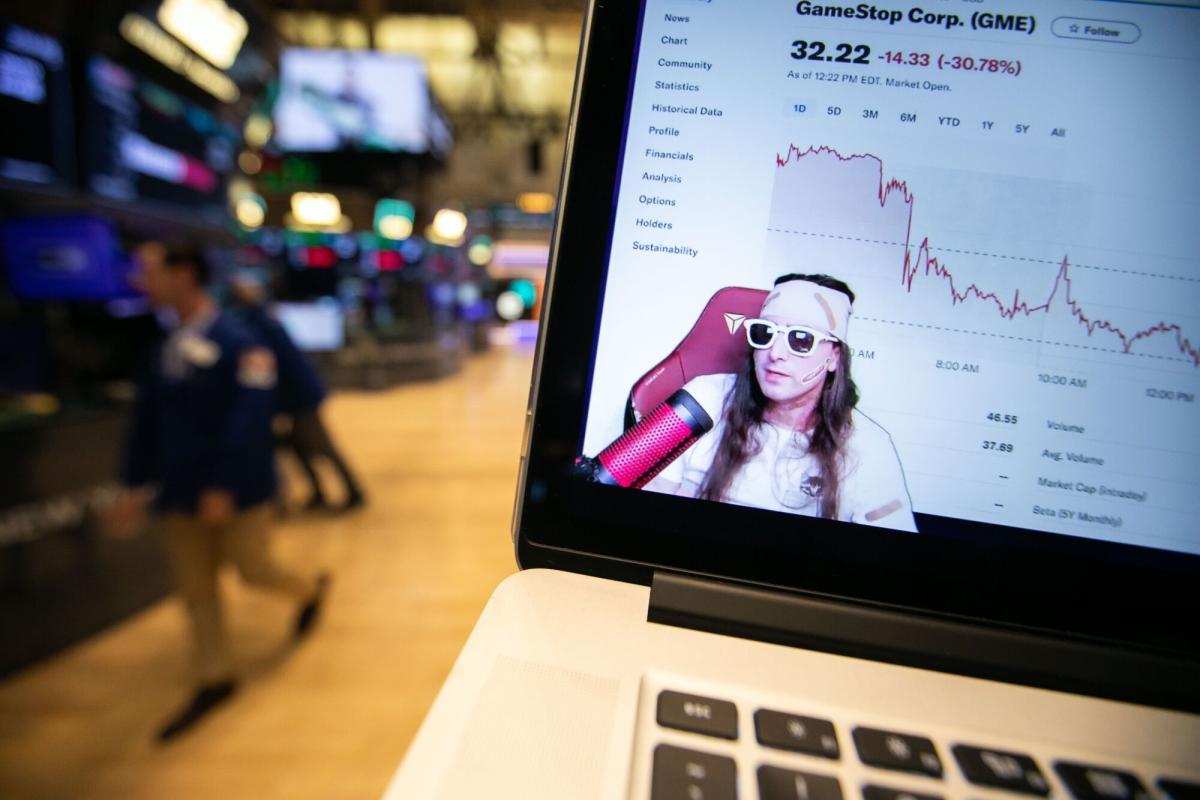(Bloomberg) — As a renewed bout of GameStop Corp. fever gripped the meme-stock faithful, fans of trading influencer Keith Gill were waiting for a moment: the day their hero, aka “Roaring Kitty,” also known as “Deep F-ing Value,” would become a billionaire.
Most read from Bloomberg
The idea was hardly far-fetched. Over the course of two weeks, Gill had posted images of a huge stake in GameStop and its call options in a portfolio that peaked at more than $550 million on June 6. Although he has added more shares since then, the dollar value of his holdings has fallen along with the company’s stock.
With the stock having changed little since the early days of its last mania, a new kind of fear is emerging among Wall Street and retail traders alike.
The original GameStop rally of 2021 shook the idea of short-selling to its core – eroding the appeal of betting on a floundering company while potentially leaving you feeling the wrath of Redditors. This time the existential question is about what counts as market manipulation.
Does posting a meme, which may yield immediate profits, go against the spirit of free and fair markets? Has the David vs. Goliath nature of meme stocks changed? What if Roaring Kitty is the Goliath? And how exactly did he build a position bigger than Charles Schwab Corp.?
“The original meme stock craze was us versus them, with ‘them’ being the guys who would short sell millennials’ favorite companies like GameStop,” says Steve Sosnick, chief strategist at Interactive Brokers. “But I’m not sure who ‘they’ are anymore.”
Gill did not respond to a request for comment.
Losing charm
Gill, the populist leader of a short squeeze that shook Wall Street during the original meme stock rally of 2021, is losing his folksy charm, at least to some followers. Trading firms and even some former fans are eyeing Gill with more suspicion, while Redditors are asking questions like, “What makes Roaring Kitty come back, not a simple pump and dump scheme?”
On Thursday, snapshots from Gill’s brokerage account suggested he had unwound an earlier position of 120,000 call options and added more GameStop, increasing his portfolio to about 9 million shares of the video game retailer, worth more than $262 million. (Gill’s last post in 2021 showed he had 200,000 shares worth more than $30 million; GameStop did a four-for-one stock split in July 2022.)
As Gill’s actions sent the price soaring again, GameStop took advantage of the volatility to sell more than $2 billion worth of stock.
All told, everyone who bought and held stocks last month had about the same amount of money as profit. For some, a big difference is that hedge funds and other sophisticated investors have adapted from three years ago and are likely to lead the way – at the expense of Gill’s retail trading fans.
“Some quantitative managers have models to look at price trends, and those models are extremely quick to exit stocks when they see significant downside volatility,” said Don Steinbrugge, CEO of Agecroft Partners, which helps hedge funds. collect money. “At some point, retail investors will wise up and realize there is a lot of danger out there.”
Manipulation problems
The episode raised questions about what constitutes market manipulation. The Wall Street Journal reported that Morgan Stanley-owned brokerage E*Trade was considering banning Gill from its platform over such concerns, having previously banned other popular personalities such as Dave Portnoy, the founder of Barstool Sports, who streams as Davey Day Trader, had banned and said he was being kicked out of the real estate business.
A spokesperson for E*Trade declined to comment.
What’s special about Gill’s case is that market manipulation typically involves raising the price to profit from the stock movement, said Craig Marcus, partner and co-chairman of the capital markets group at law firm Ropes & Gray. If Gill’s snaps are real, they clearly weren’t, he said.
“You can disagree with his statement about the value of the shares, but if he just carries out his statement and does not do manipulative things to make a profit,” it is difficult to prove malicious intent, Marcus said in an interview.
In fairness, even three years ago, when Gill first appeared on the public stage, he was accused of using his power to manipulate prices. In 2021, a lawsuit against Gill and MassMutual alleged that he manipulated the markets with his outsized influence over certain stocks.
“Three years ago this was funny,” says Peter Atwater, an adjunct professor of economics at William & Mary. “People are more bothered than amused by it, and that to me is an indication that this behavior is unlikely to continue.”
When Gill scheduled a long-awaited return to YouTube on June 6 with no details about what he would talk about, the stock shot up nearly 50%, adding $16 billion to its market value within hours.
In the livestream, which attracted hundreds of thousands of viewers, Gill vamped for about an hour against the backdrop of GameStop’s wildly fluctuating stock price. He seemed to sense the possibility of getting more attention from fans, regulators and trade professionals.
“Should I be careful what I say here?” he asked.
Most read from Bloomberg Businessweek
©2024 BloombergLP
